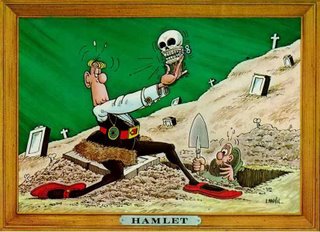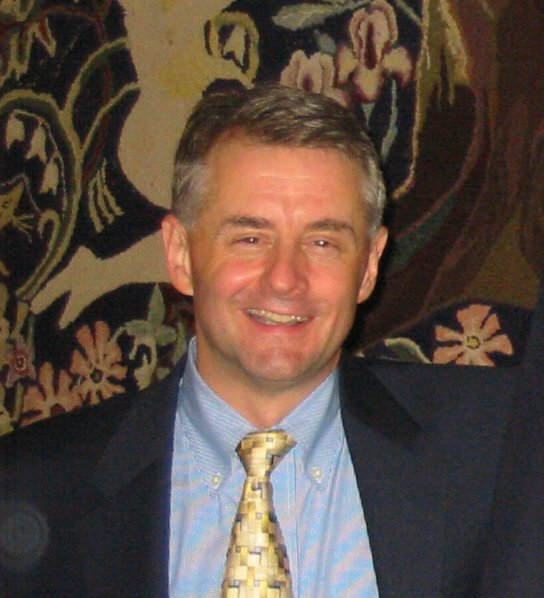
Is there a more famous question? For 400 years vasty legions of people have been kicking this line around, exploring its many facets. But never mind all that, I want to consider it as a ‘bit’ in a computer and use the idea for a jumping off point for something else.
Computers do what they do by working with electronic codes that, on their most basic level, consist of switches that are either on or off. For Hamlet, 'be' or 'not be,' for a computer, 'one' or 'zero.' This consists of two aspects: the switch itself—a complete electronic circuit (or not)—and the underlying idea of the state of being (or not). The thing and the idea of the thing—physics and metaphysics.
My ambition here is to examine information and meaning—the meaning of life...so back to our hero.
Hamlet has had a run of bad luck. His father was murdered and replaced as king of Denmark by the king’s brother—Hamlet’s uncle Claudius. That’s enough right there to get you hanging around the cemetery. But there’s more: two months after the deed Claudius marries the king’s widow! Wouldn’t that flat out make you annoyed? It certainly did Hamlet.
It all comes to a head when Hamlet asks his famous question and answers it by giving up the easy life of a dilettante prince, revenging his father and, unfortunately, getting killed in the process. So Hamlet accepts his fate, does his duty and gives his abbreviated life meaning. He saw what needed to be done and he did it.
You know, it’s interesting; now I’m more interested in Hamlet than in what I first set out to say. But that makes sense though, doesn’t it? Life is more interesting than the idea of life. Then why have I always been aching to make sense of it?
Here's one thought: real life—not the television show of the same name—is such a mess that its meaning, or lack thereof, usually isn’t clear until it’s over. That’s the beauty of an idea: if it’s a good one--true or beautiful or both--it could be around as long as there are people to think it.
So I’ll leave my theory for another day. (Wait for it.)
Okay just for fun, here it is in a nutshell.
Ideas, and meaning itself, are characteristics of matter. Time and space themselves wouldn’t exist without manifest matter--no matter, no meaning. A deep study, understanding and participation in the material world—thanks Madonna!—will yield a meaningful life.
You may notice the contradiction with my previous comment about the eternal nature of ideas. 'Do I contradict myself? Very well then I contradict myself.' Thanks, Whitman, for stealing my idea a hundred plus years before I thought of it.
More anon.

No comments:
Post a Comment